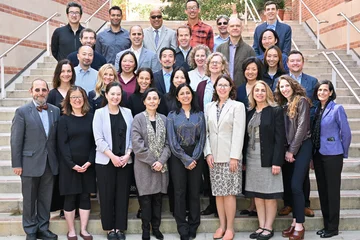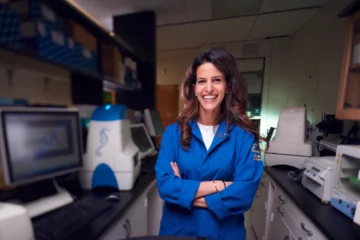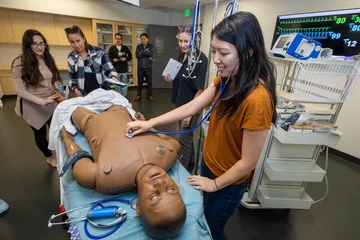A Day in the Life of Dr. Jason Roostaeian, Plastic Surgeon
Plastic surgeons and dermatologists are both in the business of helping patients look their best—whether they're recovering from cancer or disfiguring injuries or they simply want to feel better about their appearance. But although these doctors have similar goals and perform some of the same procedures, they have very different career paths.
Jason Roostaeian, MD, plastic surgeon and assistant clinical professor in the David Geffen School of Medicine at UCLA, talks about plastic surgery vs. dermatology—where these specialties overlap and how they differ, both in medical school and in practice.
Training for Plastic Surgery and Dermatology
Dr. Roostaeian knew when he started medical school that he wanted to be a surgeon. "Creative outlets are my passion," he explains. "I also love science—problem solving and figuring out how things work. That's what attracted me to plastic surgery—using my hands to create but also doing something intellectual that requires thinking on my feet."
Following medical school at UCLA, Dr. Roostaeian matched into UCLA's combined general surgery-plastic surgery program, which only accepts one applicant per year. The competitive nature of residency programs is something dermatology and plastic surgery have in common. "Plastic surgery has fewer spots but also fewer applicants than dermatology, whereas dermatology has many applicants and a limited number of spots compared to most other residency programs."
From a training standpoint, the two careers are quite different. Whereas dermatologists work mostly in clinical settings, plastic surgeons spend most of their time in the operating room. "Plastic surgeons typically have some formal training in another surgical discipline, most commonly general surgery but also head and neck surgery, orthopaedic surgery and even some ophthalmology. Overall, the training takes longer for plastic surgery, with a minimum of six years versus four years on average for dermatology."
(How to Become a Plastic Surgeon. Click the link to learn more...)
Practicing Plastic Surgery vs. Dermatology
Dr. Roostaeian specializes in both aesthetic and microvascular surgery, performing rhinoplasties and other cosmetic procedures as well as reconstructive surgeries for cancer patients.
Aesthetic medicine is where dermatologists and plastic surgeons overlap the most. "We both tend to do Botox, fillers and various rejuvenating skin treatments, but dermatologists tend to be more interested and well-versed in the best treatment for the skin, while most plastic surgeons prefer to be operating. So we usually form relationships with one another and refer patients to get the best possible care for any given treatment," Dr. Roostaeian says. For instance, he often refers patients looking for the latest laser treatments of the skin to a dermatology colleague, and "when he has someone who needs a facelift, he sends them my way."
Dermatologists who specialize in skin cancer may also perform limited surgical procedures, particularly Mohs surgery to remove cancerous tumors. "Mohs is a fantastic technique performed primarily by dermatologists, so we rely on them a lot for that," Dr. Roostaeian says. "Some dermatologists who perform Mohs do their own reconstruction to repair the wound, but when it's a bigger, more complicated tumor that requires more extensive reconstruction, it should be performed in an operating room under anesthesia, and they'll often call on us."
(What Does a Dermatologist Do? Click the link to learn more...)
Career Satisfaction
At the end of the day, plastic surgery is an extremely rewarding profession. "Of all the medical specialties, this is one of the most positive, especially with cancer reconstruction, because you're able to give the patient something back," Dr. Roostaeian observes. "Even with elective aesthetic surgeries, you're often helping their self-confidence, which can be extremely gratifying."




